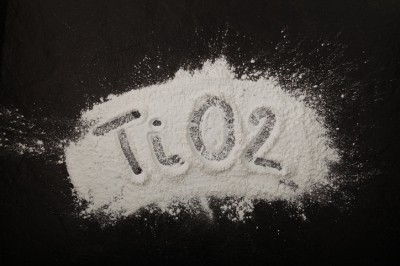Guest article
The Future of Self-Care Depends on Continued Access & Expanded Choice

Increasing access to consumer healthcare products – such as dietary supplements, over-the-counter (OTC) medications, and consumer medical devices – is not just about convenience, but it's a fundamental step toward promoting public health and well-being.
As the self-care industry continues evolving from an emphasis on treatment to an emphasis on prevention, we’re seeing more and more consumers incorporate dietary supplements into their overall self-care plans. The Consumer Healthcare Products Association (CHPA) recognizes these products play an important role in empowering consumers to take greater control over their nutrition and health needs, especially for Americans living in underserved or rural communities with limited access to nutritious foods or healthcare – known as healthcare deserts. Removing barriers to make products like dietary supplements more accessible for all, can help fill essential nutrient gaps and reduce the risk of developing various health issues affecting growth, development, immune function, and peoples’ overall well-being – which ultimately contributes to better overall health outcomes.
To that point, CHPA has continued its work this year to expand people’s ability to make pre-tax purchases on a range of health products, including dietary supplements. Realizing that most Americans want increased flexibility to best determine how to use their pre-tax dollars to stay healthy, CHPA championed this year’s introduction of the Dietary Supplements Access Act.
This bipartisan legislation will provide greater choices to consumers by allowing them to use Flexible Spending Accounts (FSAs) and Health Savings Accounts (HSAs) to purchase supplements. Access-focused solutions such as this, help to further remove barriers, giving increased health and wellness options to the more than 60 million Americans who rely on these programs to cover out-of-pocket costs.
While we hope to see federal legislative opportunities gain momentum in 2024, industry must manage its expectations, considering this year had more state legislative activity than we’ve seen in nearly 20 years. We anticipate this activity to continue into next year, and CHPA will continue proactively working to prevent sweeping legislative efforts that jeopardize consumer access to safe, beneficial, and well-regulated dietary supplements.
This is particularly true when it comes to supplements in the weight loss category, following action in several states this year to advance legislation that would restrict the sale of weight loss supplements to consumers under the age of 18. Although well intentioned, these bills will ultimately do more harm than good, due to the overly broad language that would restrict the use of other dietary supplements not intended for weight loss at all, and that serve a legitimate health benefit for consumers. When it comes to this issue, CHPA encourages state legislatures to take a more targeted approach by focusing on products marketed for weight loss or muscle building, and not inadvertently applying restrictions to supplements for general health. We also recommend legislatures increase enforcement against any illegal products falsely marketed as dietary supplements for weight loss.
We also expect to see continued attempts to ban certain food additives, including titanium dioxide (TiO2). Earlier this year, CHPA submitted comments to the U.S. Food and Drug Administration (FDA) in response to a Citizen Petition from the Environmental Defense Fund (EDF) asking FDA to revoke the use of TiO2 in foods, including dietary supplements.
Ensuring consumers maintain access to safe and quality dietary supplements remains a top priority for industry, and TiO2 plays a crucial role in achieving these goals by enhancing the stability of various dietary supplements. Although CHPA and broader industry were successful in amending legislation in California that would have banned TiO2 from food products, we remain concerned with any future action by states to ban FDA-approved ingredients, as our nation’s food system works most safely and efficiently under a uniform system of regulations, versus a patchwork of state-by-state laws.
In November, CHPA welcomed news from the World Health Organization’s (WHO) Joint Expert Committee on Food Additives (JECFA) which reaffirmed the safety of TiO2. CHPA urges legislators and regulators to carefully consider JECFA’s update ahead of any upcoming determinations on this issue, as a hasty ban on this ingredient – whose safety for use in supplements has been consistently confirmed by extensive scientific research and regulatory evaluations – would not enhance product safety. Instead, it would threaten availability of affected products for millions of consumers.
Increased access to dietary supplements is a cornerstone of a healthier society. Not only does it empower individuals to take greater control over their health and well-being, but it contributes to health equity and strengthens the overall resilience of our nation’s healthcare system.
With Americans prioritizing self-care more than ever, CHPA’s member companies are continuing to deliver personal healthcare options that allow consumers to increasingly take their health into their own hands. As an association, we plan to continue working closely with regulators, lawmakers, and other key stakeholders to advance policies and regulations that are rooted in innovation, strong science, safe use, continued access, and that increase choices for America’s consumers.








